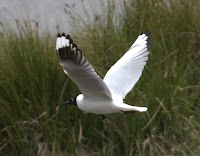 |
| antisana volcano |
Well, what is noteworthy about this small country with its incredible biological diversity and geographic variation. is that within two hours drive in either direction from Quito , you can descend into the Amazon basin . or alternately in the West, the equatorial Pacific beaches.
This extreme physical variation gives rise to the continent's most diverse and plentiful flora and fauna. This country can boast of being home to 1600 species of birds, more than twice the number found in the USA and Canada combined. That is why I came here in the month of February to see what I could see and also to improve my photographic skills with the help of a newly acquired Canon camera and zoom lens. Although I probably took something like 3 thousand photos, most were deleted the same evening and many more after my return to Canada. What I am left with is several hundred acceptable images from which I will draw the most compelling and interesting ones to help me tell the story of my great" vacation " I use the word vacation reservedly since, although I had a great time, I got home thoroughly exhausted and in need of a real " vacation "
















